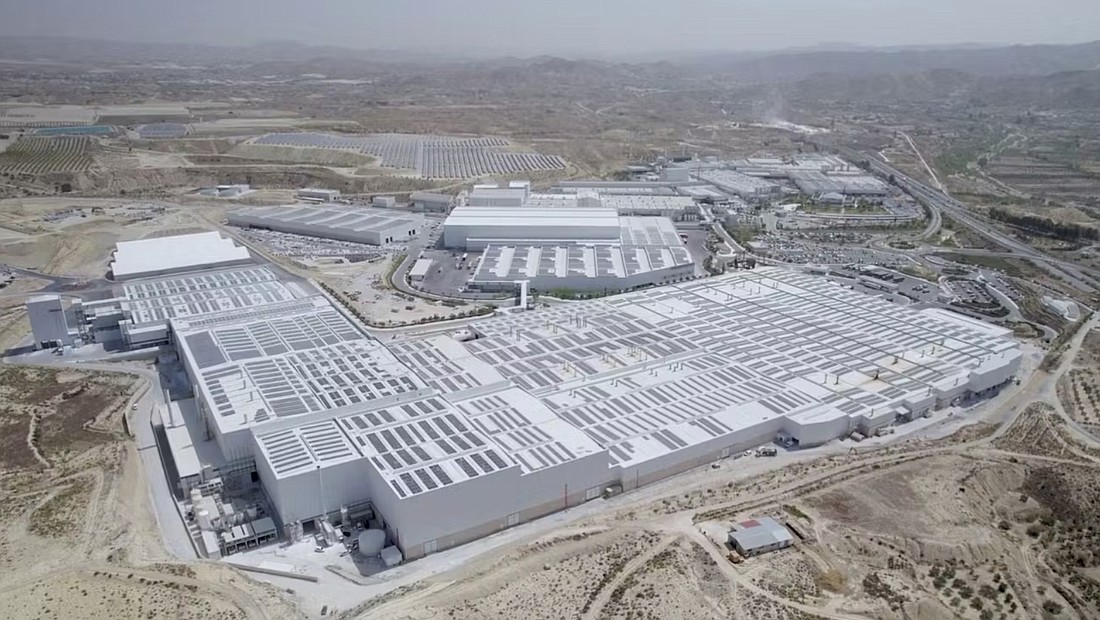
A plan to sell an initial 330 acres of the Cecil Commerce Center megasite in West Jacksonville to Spanish sustainable surfaces company Cosentino Group for a multiphase manufacturing facility is headed to City Council.
The Mayor’s Budget Review Committee voted 6-0 on April 24 to file legislation to approve the sale of the land to Cosentino for $20.5 million to build a $270 million first phase that city economic development officials say could top $440 million with future investment.
According to an April 19 project summary and term sheet by the city Office of Economic Development, the initial phase of the project is an estimated $270 million.
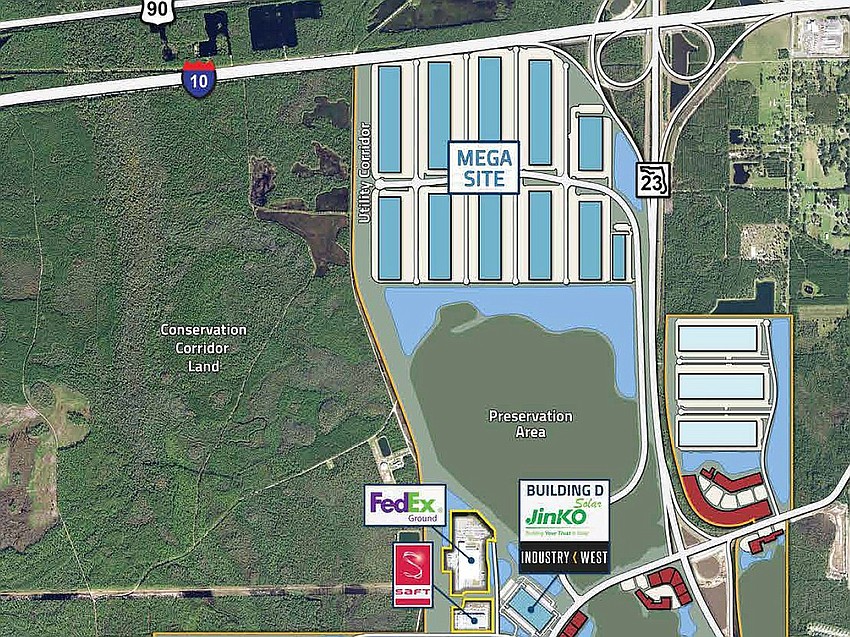
A second phase would have a minimum capital investment of $70 million.
The company will have the option to buy another 150 acres to build a minimum $100 million addition to the project.
Kirk Wendland, director of the city Office of Economic Development, said after the meeting that Cosentino’s plans for phase I are fully developed, while details for phase II and the optional acres are preliminary and could exceed investment numbers in the term sheet.
“I think future phases will probably well exceed what’s in the agreement, but that (the estimated investments) is just a hurdle to get them to certain milestones in the agreement,” Wendland said.
He said those phases are not planned to where the company can show “here’s exactly what we plan to do and we’ve cost estimated that out.”
Formerly Raptor Stone
Wendland told committee members April 24 that his office previously referred to Cosentino’s proposal as code-named project Raptor Stone.
It was named in a November 2022 JEA service availability request and included in a St. Johns River Water Management District permit issued in March.
If approved, the legislation will execute a development agreement with the global manufacturer’s U.S.-arm, Cosentino Industrial USA LLC, that includes a 50%, 10-year Recapture Enhanced Value Grant capped at $12 million, according to the deal’s term sheet.
To prepare the 330 acres for Cosentino to develop, the city will have an additional $13.6 million in expenses, $8 million of which will be authorized as part of the development agreement.
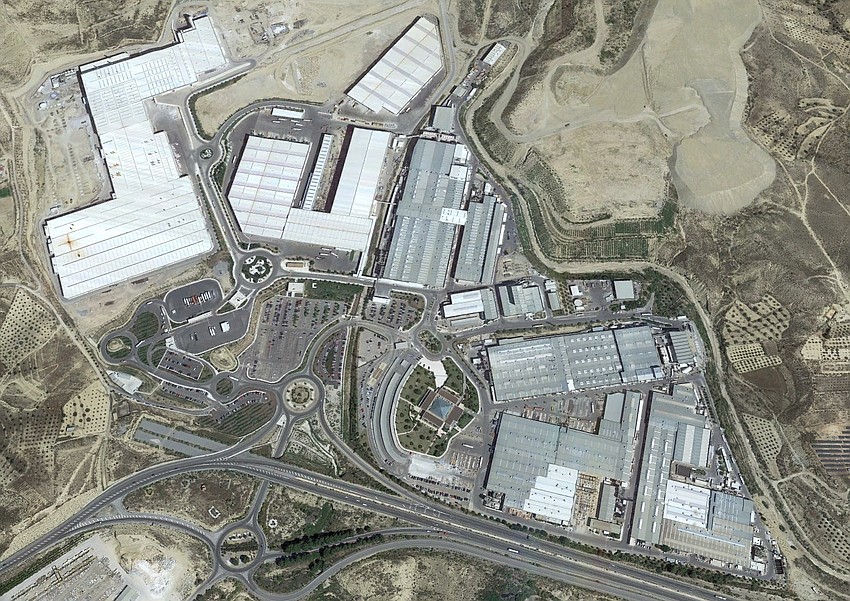
Cosentino will be a primary user of a planned CSX Corp. rail line extension into the megasite.
According to the project summary, the city will need to spend $3 million to extend Logistics Lane, a road that will service the site; $2.5 million on the city’s portion of the rail extension; and $2.5 million for a water and sewer connection.
A committee agreed April 24 to file a separate bill with Council that will appropriate $5.5 million awarded by the state in November from the Florida Job Growth Grant Fund to put toward the rail extension.
Council is expected to approve a bill at its April 25 meeting that will appropriate $5.6 million for wetland mitigation at the site.
The city would net $6.92 million from the land sale after these expenses, according to the economic development office report.
Wendland said the city would pay for its portion of the site improvements upfront through debt financing.
Spanish roots, North American market
Cosentino describes itself as a family-owned company that produces sustainable surfaces for kitchens, bathrooms, living and outdoor spaces and other architectural projects.
Its brands include Silestone, Dekton, Sensa and Scalea. Uses include quartz countertops, facades and flooring.
According to the city summary, Eduardo Martinez Cosentino and Eduarda Justo founded the company in 1945. It started purchasing quarries from 1973-76.
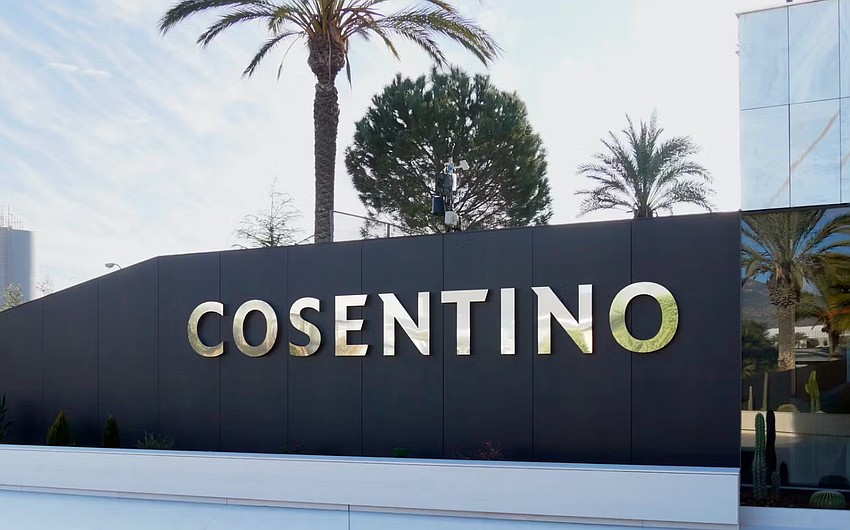
It founded parent company Marmoles Cosentino S.A. and in 1980 built facilities at its headquarters in Cantoria, Spain.
According to Wendland, North America accounts for 50% of Cosentino’s sales. He said the company was searching for a manufacturing facility in the region to take the strain off of its lines in Spain, which are at capacity.
The city summary says Cosentino will create 180 jobs at Cecil by the end of 2028.
City Chief Administrative Office Brian Hughes said Cosentino’s business plan for the megasite is designed to navigate the economic impacts of rising interest rates and downturns in its sector.
“It was clear through the discussion with them that they’re very conservative in their growth ideas,” Hughes said.
“They have already accounted for that in the growth (projections) and we still see them growing even as we might have challenges in that market space.”
The megasite
Wendland said if the Cosentino deal goes through, the city would have about 120 acres left of the 745-acre megasite southwest of Interstate 10 and Cecil Commerce Center Parkway at city-owned Cecil Commerce Center, a former naval air station.
About 600 acres of the megasite can be developed, according to the city.
The city owns the industrial park property and Dallas-based Hillwood is the master developer of what is AllianceFlorida at Cecil Commerce Center.
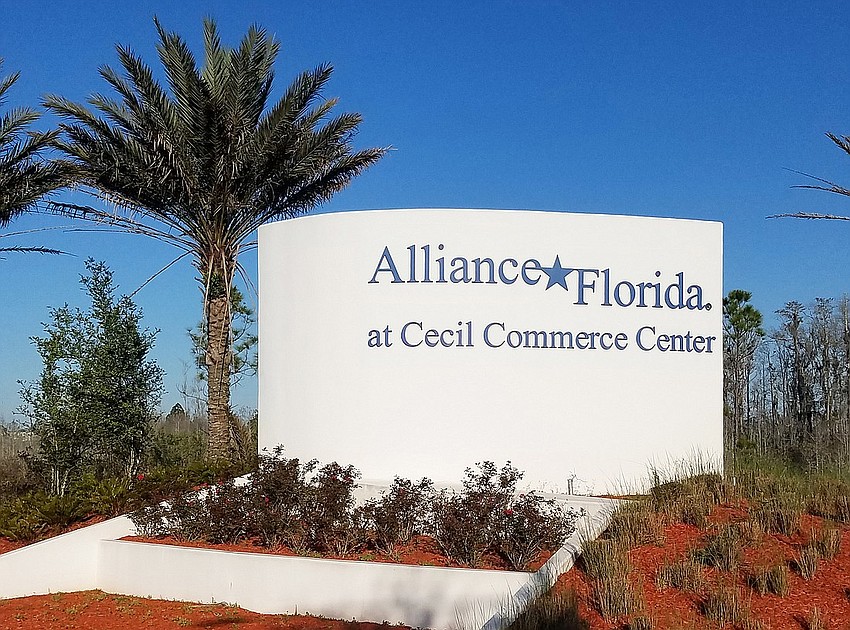
The city’s summary of the Cosentino project says the initial phase of the project would be a 408,000-square-foot facility with another 734,000 square feet for adjacent support areas and two production lines.
The city would sell the future 150-acre option parcel to the company at 75% of the appraised value at the date of the purchase.
“Keep in mind, this is really anticipated to be the first of several phases,” Wendland told the committee. “They’re probably only utilizing 20 to 25% of the project site in the first phase so they have plans for quite a bit of future expansion.”
The city would have two separate right-of-repurchase options built into the agreement should Cosentino not begin construction on initial improvements by Jan. 1, 2026, or construction of second-phase improvements by Jan. 31, 2035, according to the term sheet.
Since taking control of Cecil Commerce Center in 1999, the city has been recruiting companies to fill 4,475 acres of the 17,000-acre site.
The development plan envisioned a limited number of companies filling the megasite.
“It’s always been held out for either one large or a couple of extremely large users,” Wendland said. “So, we proposed this site many times over the years but for various reasons, the projects have never come to fruition.”